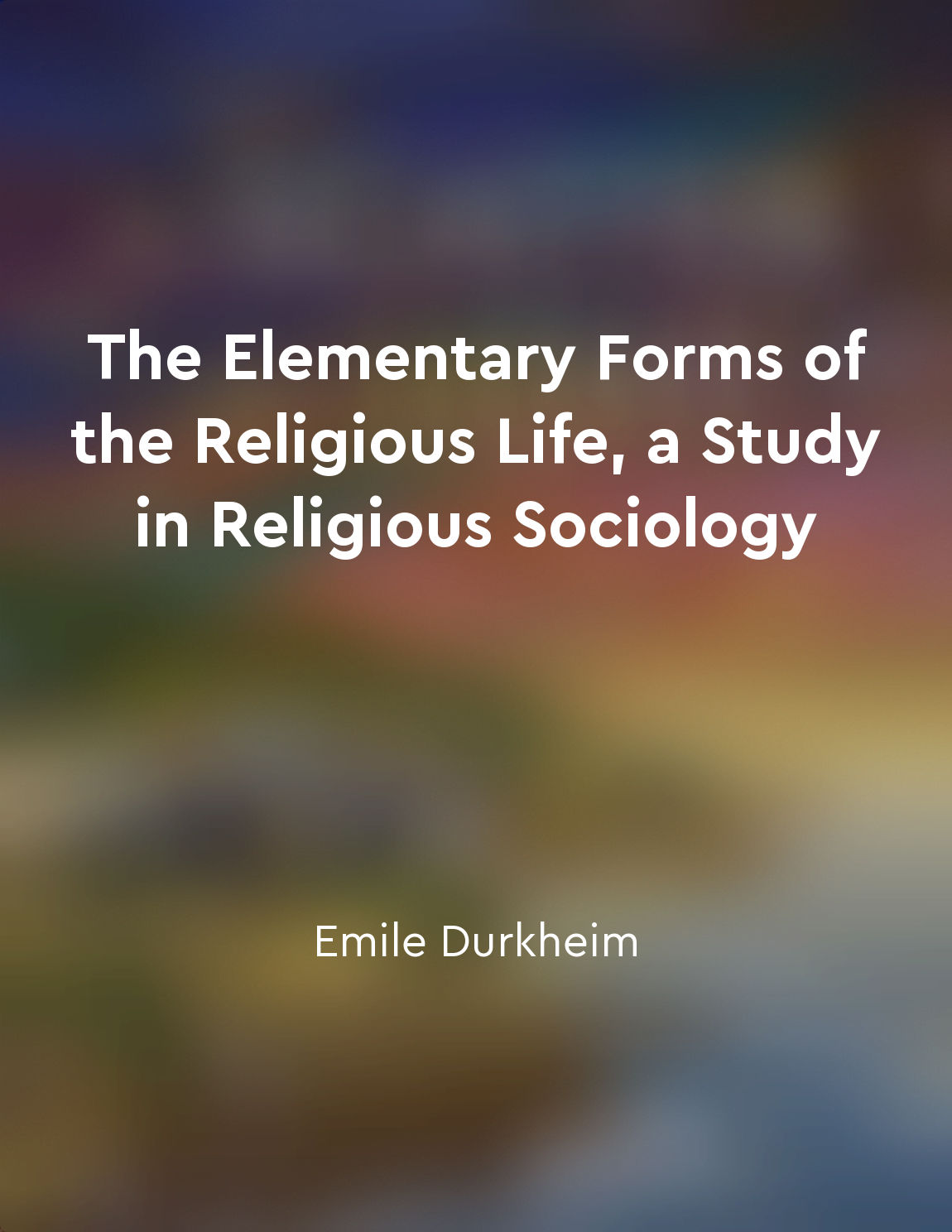The moral sense is evidence of a godly nature from "summary" of The Language of God by Francis Collins
The moral sense, that inner compass guiding our decisions of right and wrong, is a powerful indicator of a godly nature within us. It is a unique and universal aspect of human experience, transcending cultural boundaries and time periods. We all feel a sense of moral obligation, a conviction that certain actions are inherently good or bad, regardless of personal opinions or societal norms. This moral sense is not simply a product of evolutionary processes or societal conditioning. It goes beyond mere survival instincts or learned behaviors. Instead, it points to a deeper truth about the nature of humanity. It suggests that we are more than just biological beings, that there is a spiritual dimension to our existence. As humans, we have a capacity for selflessness, compassion, and empathy that sets us apart from the rest of the natural world. We are capable of acts of kindness and generosity that defy rational explanation. These virtues are not the result of chance or coincidence; they reflect a higher purpose, a divine spark within us. When we feel a sense of guilt or shame for our actions, when we are moved by stories of sacrifice and heroism, we are tapping into this godly nature. We are recognizing the presence of something greater than ourselves, something that transcends our physical bodies and material desires.- Our moral sense is a reminder of our connection to a higher power, a source of goodness and truth that guides our lives. It is a testament to the existence of a loving and just God who has instilled in us a sense of right and wrong. By embracing this moral sense, we can better understand our place in the universe and fulfill our potential as beings created in the image of God.
Similar Posts
Darwin concludes with a reflection on the nature of humanity
In the final pages of his work, Darwin turns his attention to the nature of humanity. He acknowledges the vast differences betw...
Philosophy deals human nature
The study of philosophy encompasses a wide range of inquiries into the nature of reality and the human experience. One of the c...
Upholding truth and righteousness
The concept of upholding truth and righteousness is a central theme in The Bhagavad Gita. It emphasizes the importance of livin...
Anne contemplates her identity and purpose in the world
Anne often finds herself lost in thought, pondering the very essence of who she is and what her role is in the world around her...
Slave morality fosters resentment and envy
Slave morality, as I have observed, is a product of the weak and oppressed who seek to turn their powerlessness into a virtue. ...

Totemism exemplifies the essence of religion
Totemism, as a religious phenomenon, reveals the fundamental nature of religion itself. Through the study of totemism, we can g...
Taoism sees the divine in nature and harmony
Taoism, as a religious tradition that emerged in ancient China, emphasizes the importance of living in harmony with the natural...

Doubt and skepticism are essential for intellectual growth
In the pursuit of knowledge and understanding, doubt and skepticism play a crucial role. They serve as catalysts for intellectu...
Moral actions are done out of respect for the moral law
The concept that moral actions are done out of respect for the moral law is central to Kant's moral philosophy. According to Ka...
Arjun is confused about his duty in the battle
Arjun, standing in the middle of the battlefield of Kurukshetra, is filled with confusion and doubt about his duty. He is torn ...

